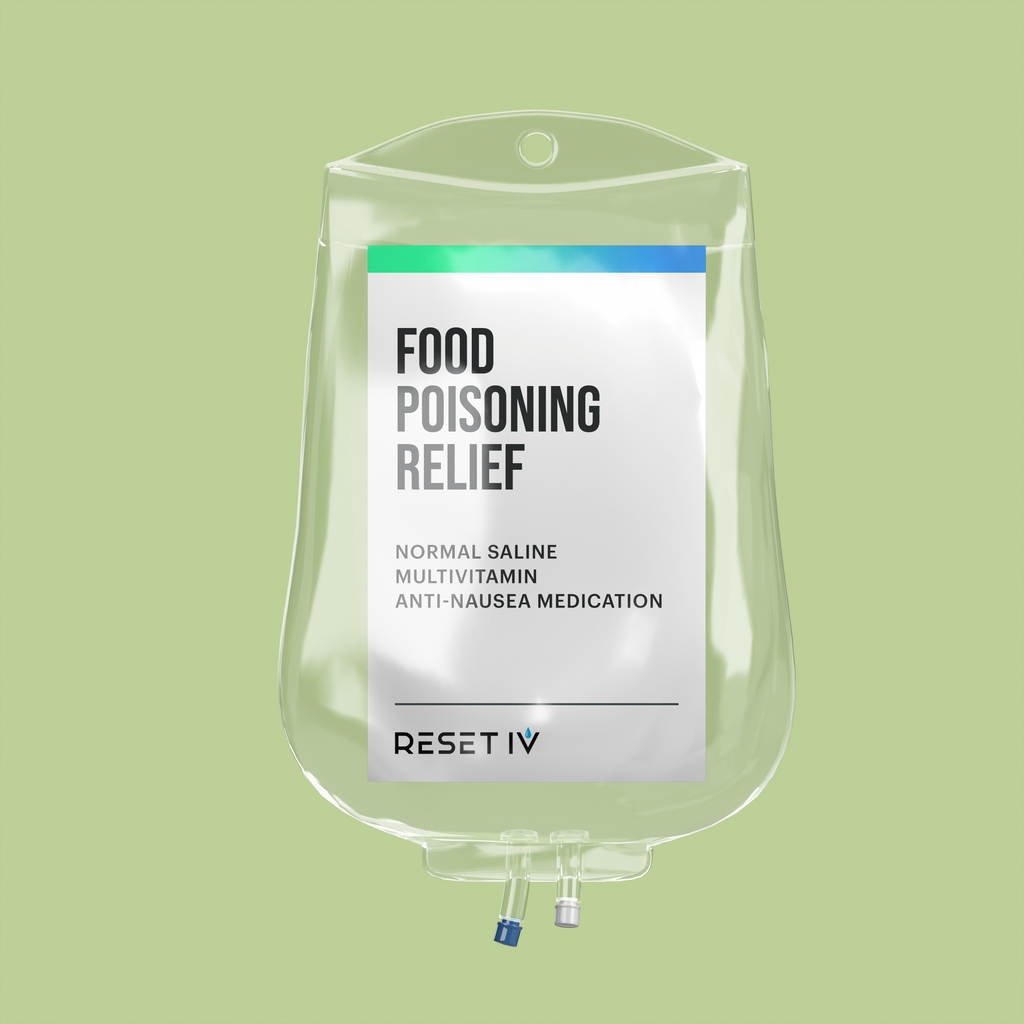
Food Poisoning
Never Any Travel Fee!
Food poisoning can be caused by food that is contaminated with bacteria, viruses and more. The symptoms can start within hours of eating something bad and can escalate pretty quickly. Some symptoms include nausea and vomiting. Get an IV today to help settle your stomach and restore lost nutrients!
- Book now & pay later.
- No payment required upfront.
- We'll come to you with zero travel fees!
What's Inside?
WHAT PEOPLE SAY
What is IV therapy
How Does IV Therapy Cure Food Poisoning?
IV therapy allows nutrients to bypass the digestive system and reach your bloodstream directly, ensuring a 100% absorption rate.
Our Food Poisoning Package contains a special blend of multivitamins C, A, B, B1, B6, D3, E, and K1, as well as Niacinamide (vitamin B3) and Dexpanthenol (vitamin B5), formulated to help settle your stomach and restore lost nutrients. In addition, the hydrating solution helps supplement your fluid intake and prevents dehydration.

Available 24/7
Fast, around-the-clock service is essential when suffering from food poisoning.

We come to you
We can accommodate same-day appointments and will usually be at your door within an hour of booking.

Safety First
Our IVs are administered by our medical team with years of experience in IV therapy, following the highest level of safety, sterility, and professionalism.

Fast-acting Results
Treatment starts to work within minutes, providing fast and effective relief from symptoms of food poisoning.
Our Process
Our IV Therapy for Food Poisoning
Our mobile IV services for food poisoning cover Las Vegas, Los Angeles, Miami, Ft. Lauderdale and Hollywood, and Orange County.

BOOK YOUR TREATMENT
Call or text us to schedule your treatment, or simply book online.

WE COME TO YOU
A nurse will come to you, typically within an hour, with all the supplies needed to get you feeling your best again.

FEEL BETTER, QUICKER
Whether it’s IV therapy for a migraine, hangover, immune defense, or NAD+ you’ll start feeling the effects of your treatment quickly.
Safety First
Physician-Approved
Our medical team has administered over 100,000 IVs and have years of experience working in hospitals. Each of our medical professionals are fully
licensed and insured in accordance with the strictest standards in the states in which we operate. We also have an obsession with customer
service, and train our team to ensure you have an awesome experience.
We provide the same level of professionalism you can expect from a hospital or urgent care, and make sure that you're receiving an IV treatment
that meets the highest safety standards!




